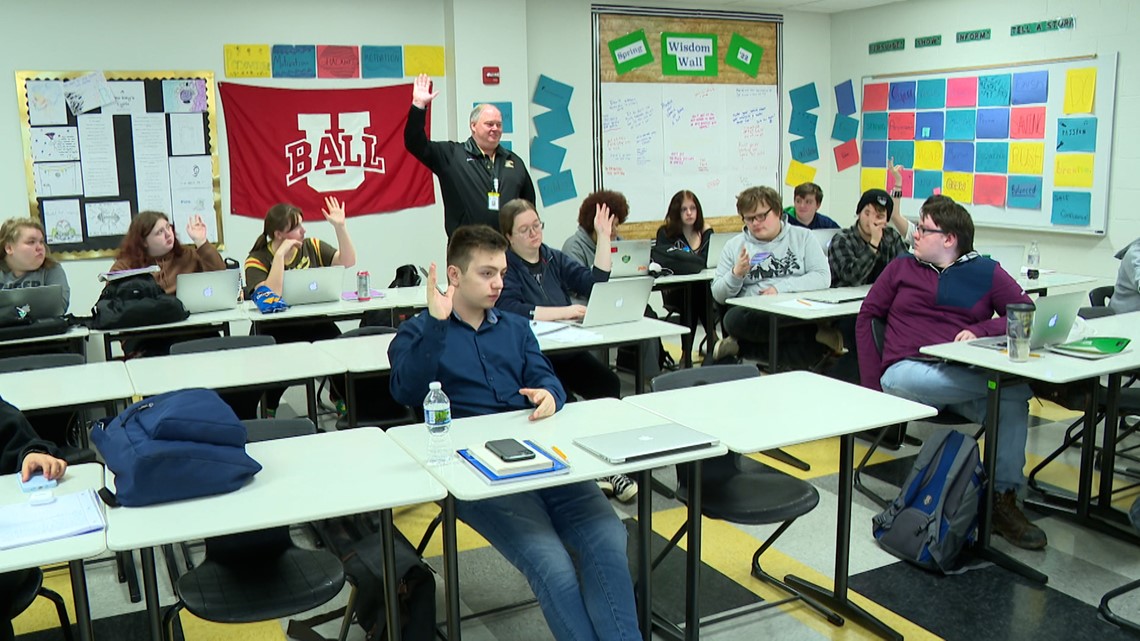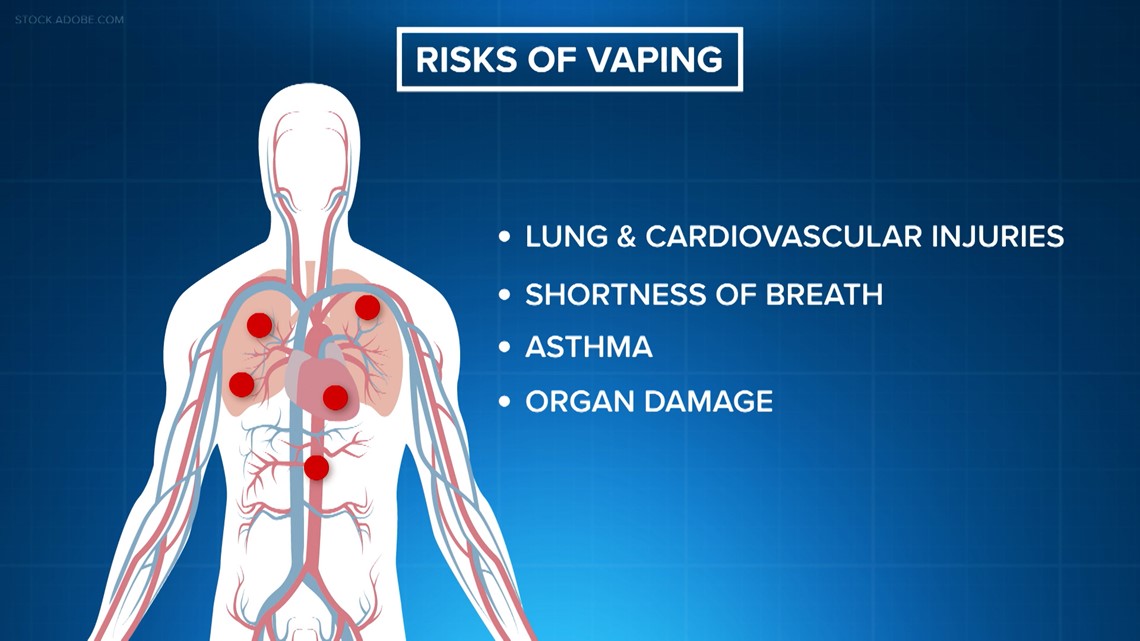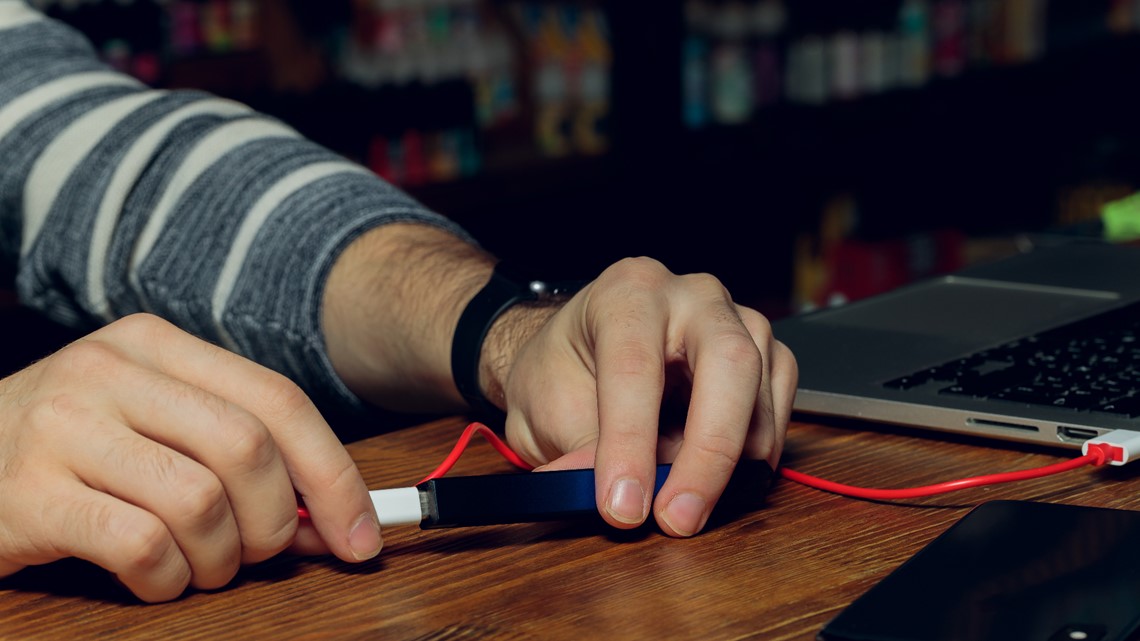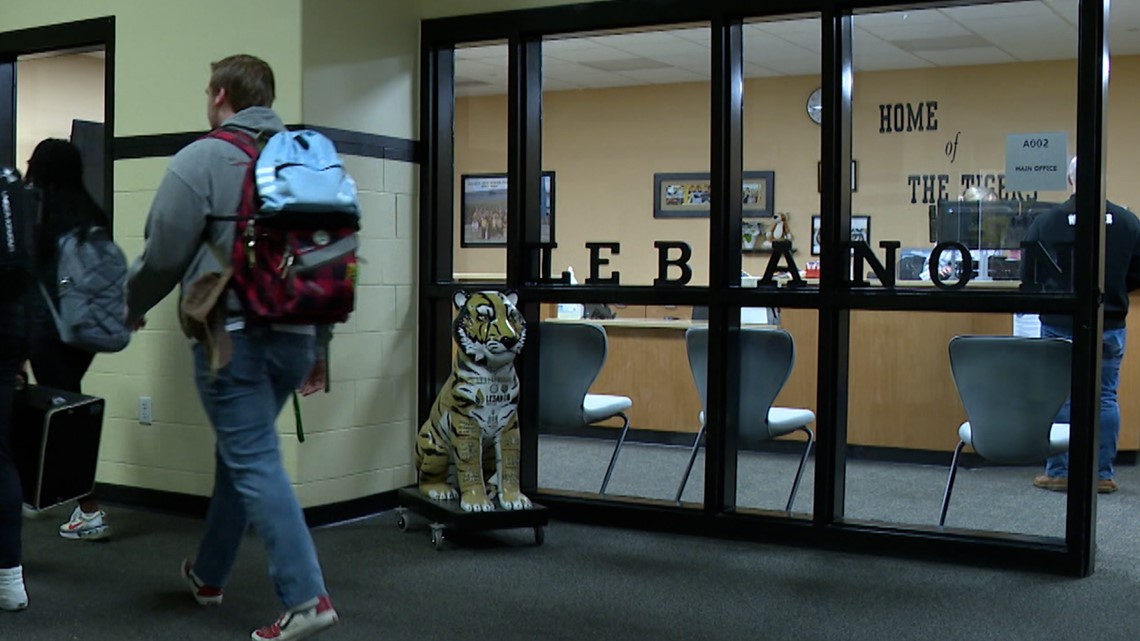BOONE COUNTY, Ind. — Over the last decade, vaping has emerged into an epidemic of alarming proportions among U.S. teenagers. Last year, 20% of middle and high schoolers admitted to using nicotine products – despite the health dangers.
Indiana schools are working to keep kids from getting hooked.
Lebanon High School principal Kevin O'Rourke knows a lot of his students vape and says he knows the e-cigarette industry is targeting his kids.
"These companies have done a great job, if you want to call it that, of really marketing the product and in sending out misinformation," O'Rourke said. "Many people, including young people, think that it's not dangerous or it's better than smoking – and it's quite to the contrary."
O'Rourke said it is a daily effort to make sure kids aren't doing it on campus. The school just installed vape detectors in the bathrooms.
"It's really not about catching kids as much as about getting attention and trying to help educate our students that are in our families that this is a serious issue," O'Rourke said. "It's, 'We care about you enough to say, please don't do this. And we're going to monitor you for this.'"


E-cigarette companies, like Juul, have been accused of and even settled lawsuits over marketing their products to teens (including selling candy flavors) and promoting it as safer than regular cigarettes.
Bryan Hannon with the American Cancer Society Cancer Action Network worries marketing is winning out with teens and could lead to cigarette use later.
"They're sleek, they're easy to disguise. They're easy to hide. Sometimes they look like a tech product, you can plug them into your laptop or USB port and recharge them," Hannon said. "And then you may get addicted to a sleek tech looking cool product as a kid, but then you have a nicotine addiction."
E-cigarettes can have hundreds of harmful chemicals along with highly addictive nicotine. There's also concern about what health issues with vaping we might not know about yet.
"They're putting themselves at risk of a lifetime tobacco addiction. And they really kind of are a walking experiment in terms of what this will do to their health," Hannon said.


Doctors have said they know vaping can cause lung and cardiovascular issues, shortness of breath, asthma and even organ damage.
Anti-smoking organizations say it's up to states to start funding programs to educate about the dangers of e-cigarettes.
"Tobacco use among kids have been at record lows. And the troubling part is that e-cigarettes have come onto the market in a big way," Hannon said. "A lot of companies are using very sleek marketing tactics to attract youth users. And so we've seen a lot of that progress be unwound and hook a new generation to nicotine."
Hannon said Indiana is doing far less than other states to curb nicotine addiction.
"You know...freshmen, sophomores, juniors, who are using tobacco products, and really – for their entire lifetime – have not seen state lawmakers make any type of effort or any type of investment in tobacco control," Hannon said.


As for school officials trying to navigate this new normal for many teens, O'Rourke just hopes parents take a more active role in making sure their kids know the risks are long term.
"You hear 50% to 75% of kids may be vaping," O'Rourke said. "There's a very large population, and a growing population across our country, of students that are using it. And we need to address it and we need to educate our families and our kids about why this is dangerous and why we shouldn't be doing it."


According to the Indiana Department of Health, roughly 3,100 young Hoosiers form daily nicotine habits every year. Yet Indiana policymakers have not increased the tax on cigarettes in 16 years or increased the tax on e-cigarettes that went into effect July 1, 2022.

